Holding Our Breath
On the road with thoughts on national parks
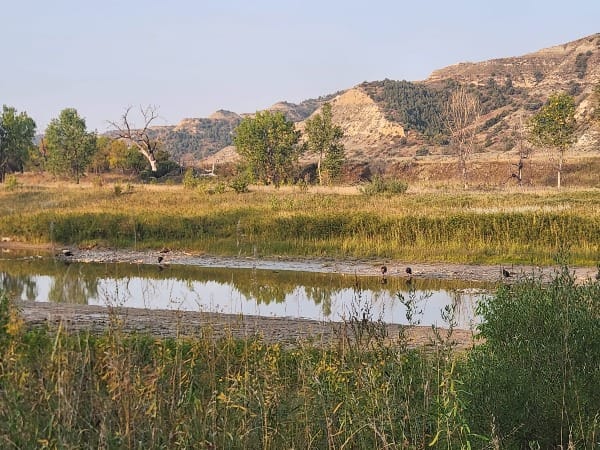
I'm typing out this newsletter on the banks of the Little Missouri River, inside Theodore Roosevelt National Park, with greater fortune than I feel I deserve. For who could deserve this birdsong, the songs of insects chirping, how the sunshine illuminates such a colorful land?
It turns out, we all deserve such things. At least that's the best intent for national parks. Such places have been protected to give us all access now and into the future.
As I've written before, I'm taking a road trip with my spouse, our dogs, and a camper van that will be put to the test with all of us and our stuff.
Our intentions differ. The dogs intend to smell new things and hang out with their humans. My spouse intends to relax and unwind; she works very hard and seldom lets up. I intend to experience many national parks to inform my next book with firsthand accounts as well as historical materials. The past's record is most important for my work, but I've found, belatedly, that firsthand experiences add something significant.
So that's why I find myself looking down the bank, across the river, and up the hills. Earlier, on the distant ridge, a bison appeared. He stood there for a long time, a symbol but also real. Just like these parks.
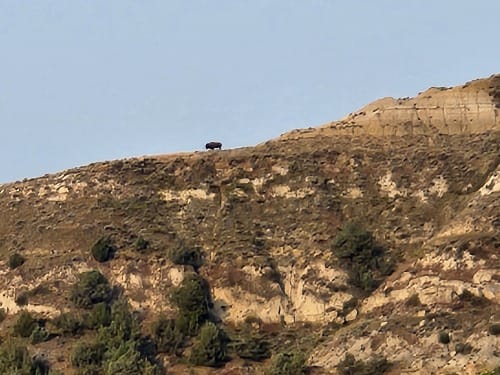
The first time I considered national parks--the first day of my college environmental history class--I recall observing something like: By establishing these boundaries, we are creating something artificial. It's the sort of comment that seems wise to a 20-year-old. There's something to it, of course; all lines on the land are "artificial."
Park boundaries mark off distinct places and impose a set of policy choices that makes some things different on this side or that side of the line. That's both real and symbolic. A bird flying over the line never knows it, but its fate is potentially different on either side.
These parks are places apart, but they also reflect the society that creates them. So they cannot be so apart after all. Teasing out that relationship--how parks and the broader society that produces them interact—is a key part of my task in the book.
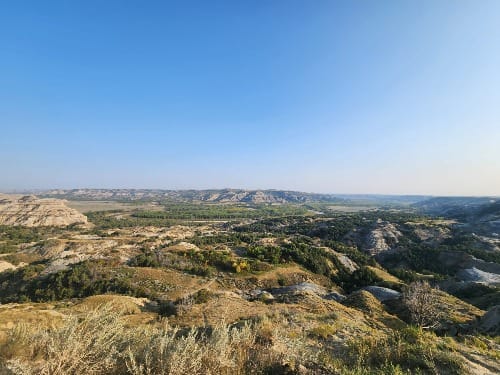
Fortunately, there are good guides who have considered these things.
In The Hour of Land, the writer Terry Tempest Williams observes, "Perhaps this is what parks are--breathing spaces for a society that increasingly holds its breath." The words took hold of me when I first read them almost a decade ago.
It's pithy. And its juxtaposition--breathing space, holding one's breath--captures something true about the world. Things are constantly in tension, always one thing and another, simultaneously able to inspire and demoralize.
We live in fraught times, much more so than when Williams wrote those words, but the signs were evident then. I don't know all of what she meant when she characterized us as holding our breath. But here are some thoughts after traveling more than a thousand miles to get here beside the river.
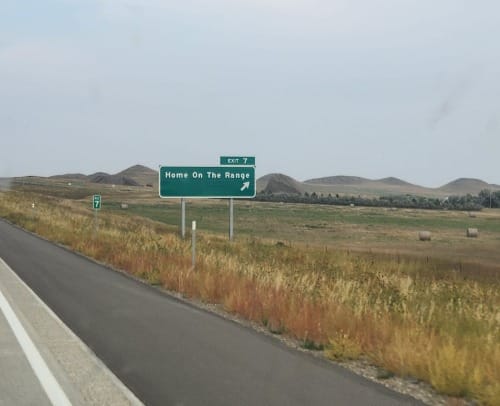
We are holding our breaths because of smoke, evidence of a changing climate and results of misguided (even if often well-intentioned) policies. For most of our route, we have seen no blue skies and no long views, because smoke has obscured it.
We are holding our breaths for the next job, the next boom, the next program to support ourselves during the bust. Much of the route here traced a hardscrabble path that better times have passed by but may come again. I thought of railroad grants, homesteads, below-cost timber sales, subsidies and minimal regulations for oil and gas--all ways to somehow make this land produce more and hide and delay the costs.
We are holding our breaths to wait out political change or revolution or victory. Flags for democracy and to support Ukraine were rare but visible. Signs for Trump, Gods, and Guns and billboards to discourage abortion punctuated small communities and open fencelines regularly. Zero-sum thinking is announced; common purpose and meaning-making remain obscured.
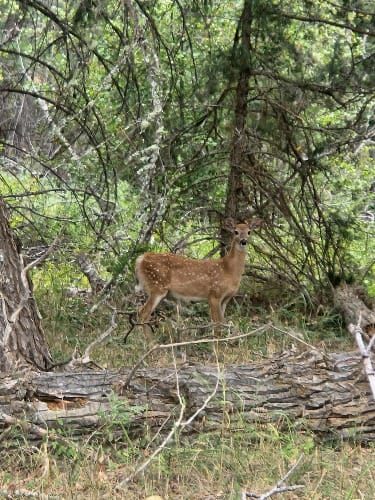
We are also holding our breaths until unexpected beauty grabs it. Curving along the Lochsa River in Idaho, I noticed patches of trees tinged red and wondered what disease had maligned the conifers before realizing they were so top-heavy with cones I could only see them and not their green boughs. Walking a short nature trail in a Montana state park, I turned toward a rustling in the trees to see a fawn, still spotted, quiet and observant. At the top of countless rises in the road, I scanned the horizon, often for miles and miles, and saw sinuous rivers, crumbling rock promontories, dense green forests, and I knew the reassurance of nature's strength.
Stopping here and setting up camp, I watched the sun drop behind those hills. I saw the cottonwoods reflected in the river. And I breathed deeply, at rest for a moment.
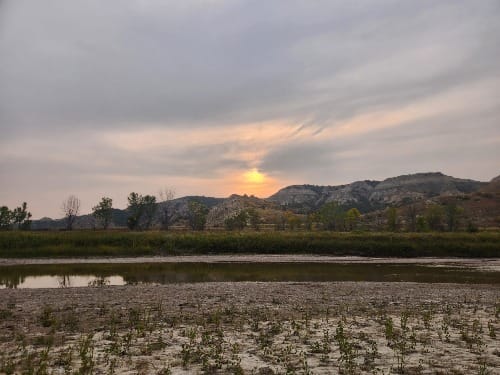
Comments ()